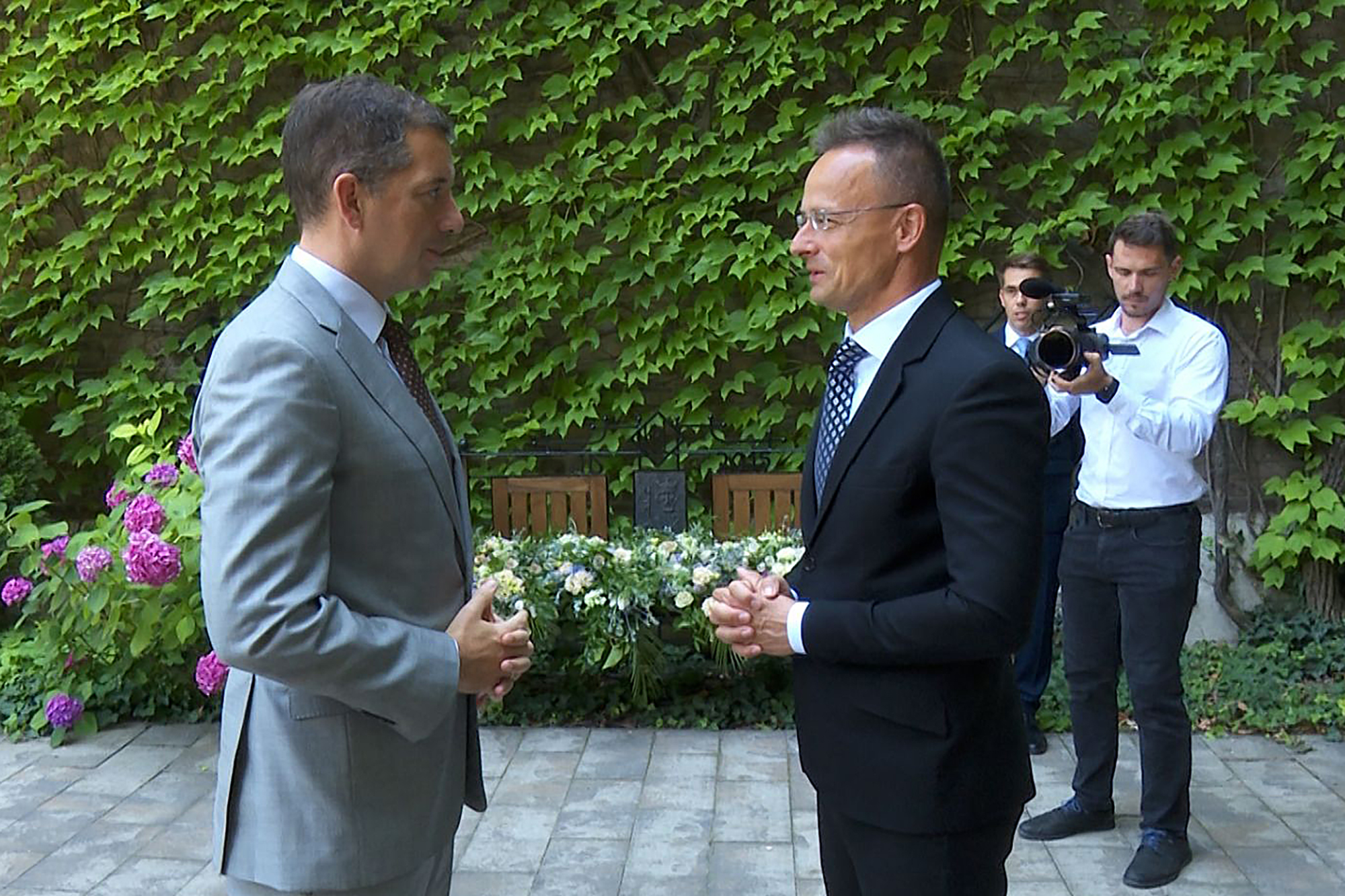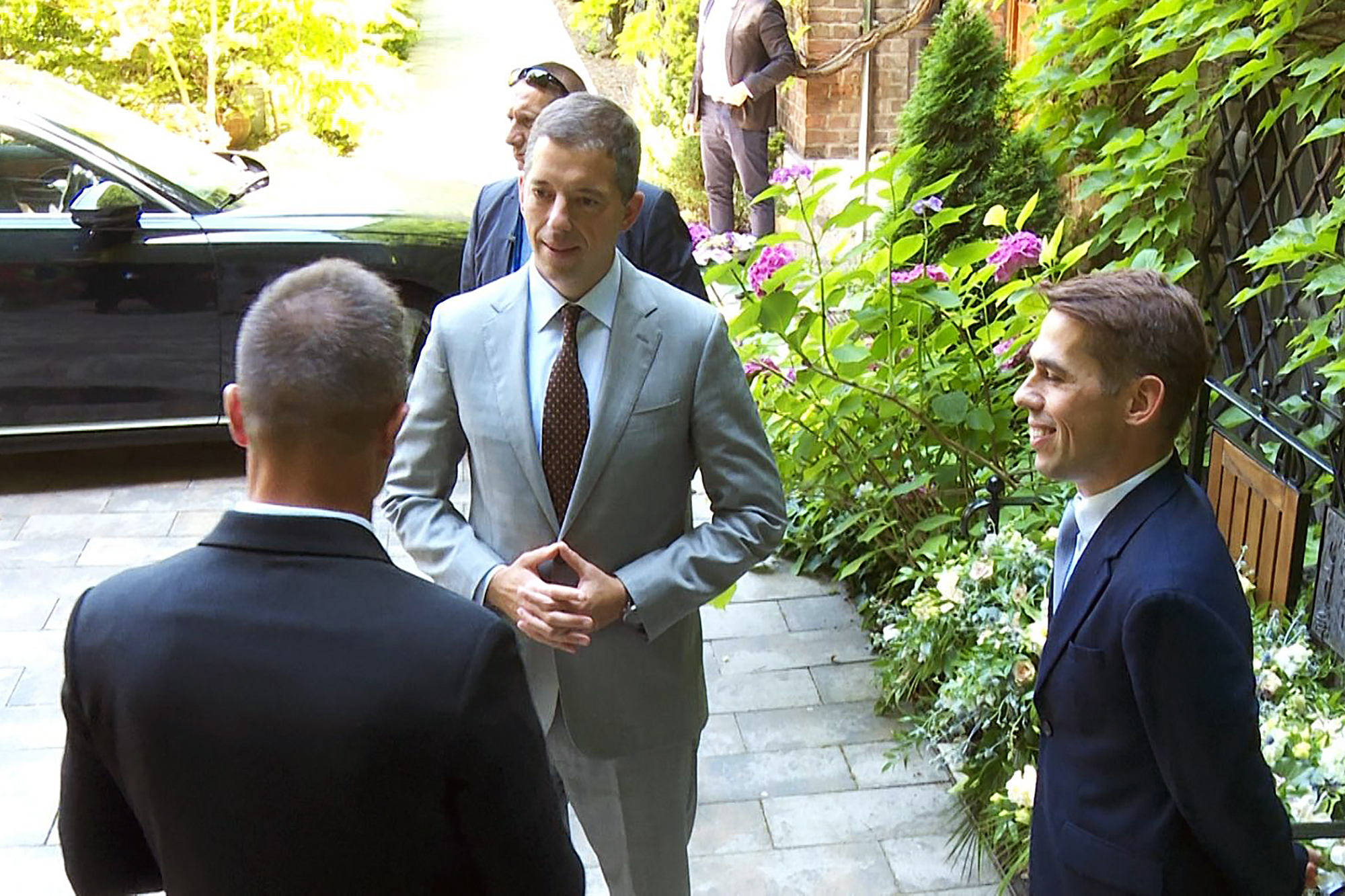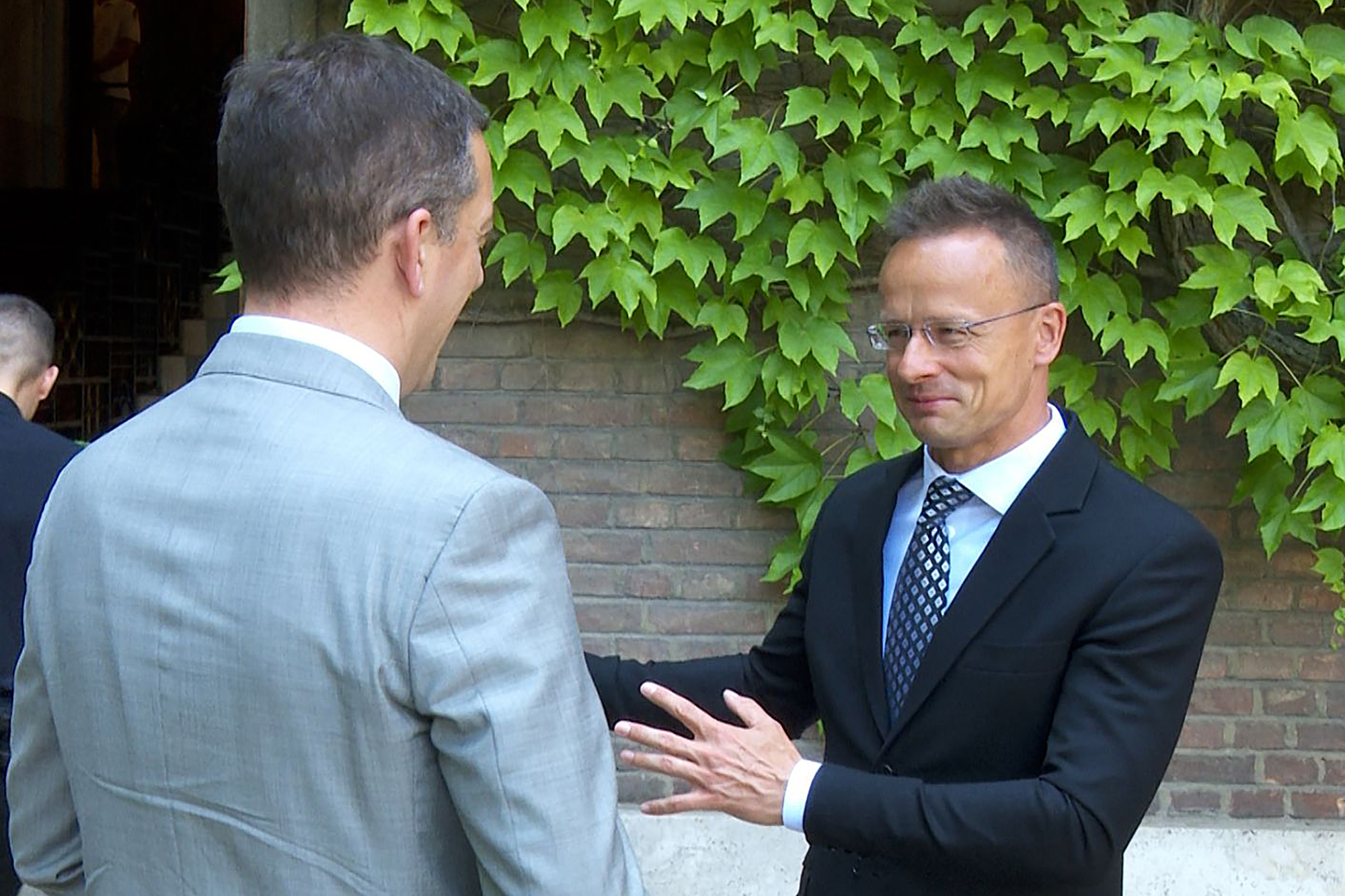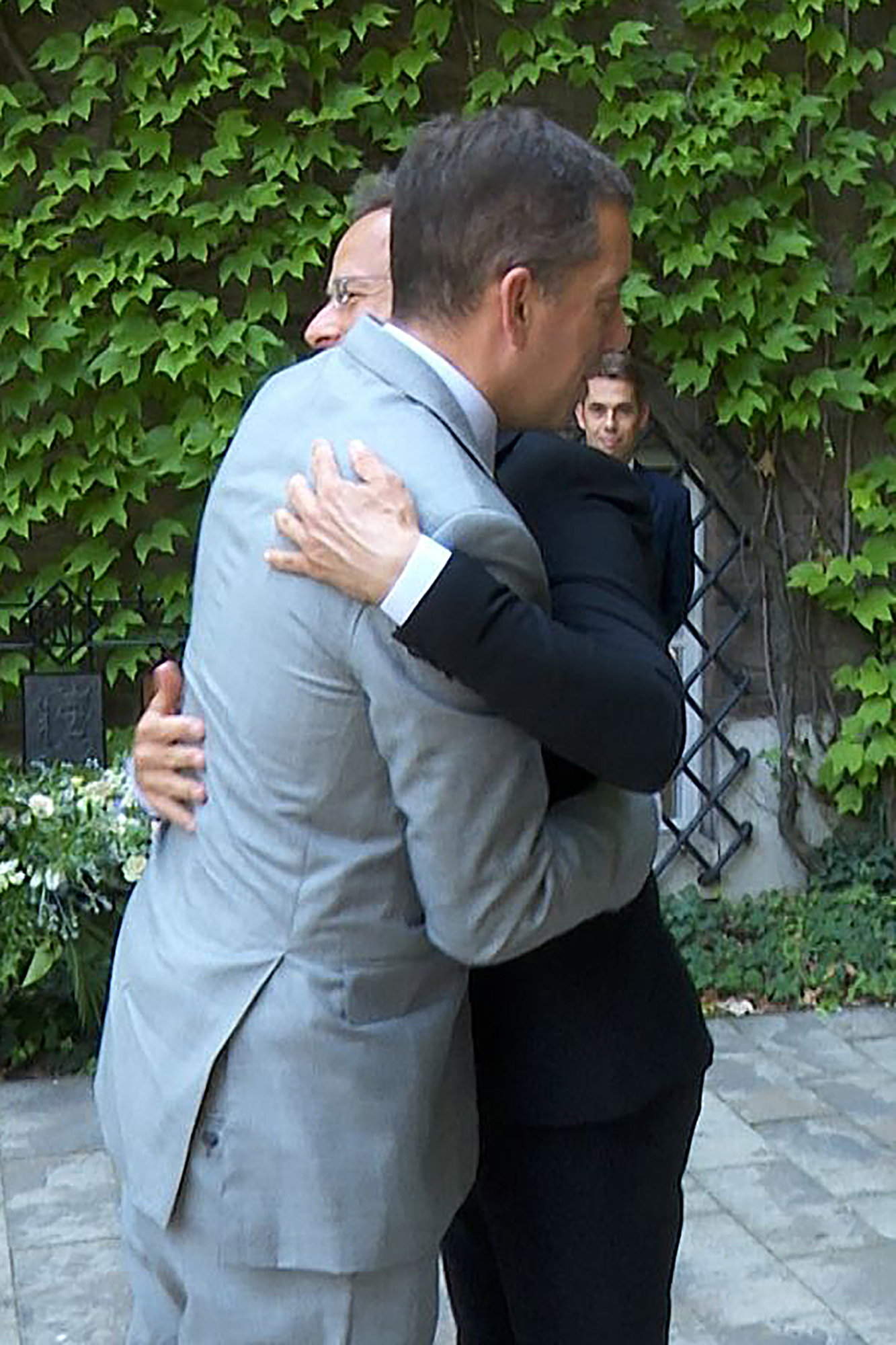Đurić: Serbia and Hungary on the right side of history – Vučić targeted for his independent policy
At the joint press conference, Minister Đurić stated that he stands shoulder to shoulder with his Hungarian counterpart in resisting efforts to undermine the legitimately elected governments of Serbia and Hungary through externally driven actions aimed at manipulating the democratically expressed will of the people, in favor of power centers far removed from Belgrade and Budapest.
He noted significant parallels between the recent events witnessed on the streets of the two capitals, and equally strong parallels in the determination of both nations and their leaderships to safeguard the true democratic will of their citizens.
“For this reason, I can openly say—contrary to certain claims and mounting pressure—that we are indeed on the right side of history and the side of defending genuine democracy. Not the kind imposed through paid media and foreign-funded organizations, nor one engineered to unlawfully overturn democratically elected governments in both countries,” Đurić said.
He underlined that Serbia and Hungary share full solidarity on this matter, as the same external actors are using identical tactics to attempt to destabilize both states. The primary targets of these efforts, he stated, are President Aleksandar Vučić in Serbia and Prime Minister Viktor Orbán in Hungary.
“I am among those who firmly believe that freedom of opinion and expression, especially minority viewpoints, is the strength of every democratic society. However, what we have seen in Belgrade in recent days does not reflect that. We are witnessing attempts to use violence—contrary to the proclaimed values of those organizing the protests—to forcibly change the government against the will of the majority,” Đurić explained.
He recalled that an unauthorized gathering was held in Belgrade on Saturday, during which police officers were attacked—an event that violated both domestic laws and acceptable democratic norms.
“How can one credibly claim to stand for democracy and the rule of law if one is not even prepared to organize gatherings in accordance with legal procedures, or to respect the very legal framework that ensures freedom of movement for all citizens?” Đurić asked.
According to him, the ultimate target of these attacks is Serbia’s sovereign and independent internal and foreign policy, and these efforts reflect an attempt by actors outside the region to bring political leadership in both Serbia and Hungary under control.
“I will always stand for the right to different opinions. But what is happening here is an attempt by a minority to impose a form of political domination—or even, arguably, political coercion—on the majority. In this context, our police and state institutions continue to act in accordance with the law, responsibly and with the aim of preserving both the constitutional order and the democratically expressed will of the people,” Đurić affirmed.
He stressed that political change in Serbia cannot and will not happen through the streets. Only the citizens of Serbia, through elections, are authorized to determine who will govern the country.
Hungarian Foreign Minister Péter Szijjártó also warned that externally orchestrated operations are currently underway with the objective of toppling governments in Central European countries whose leaderships advocate for national sovereignty.
“We know that the governments in both Hungary and Serbia act in the interest of their countries’ sovereignty. It is clear that these governments are being targeted by campaigns funded and supported from abroad,” Szijjártó said.
In this context, he emphasized, cooperation between Serbia and Hungary is becoming increasingly important—particularly in the field of energy. Both countries are determined not to renounce access to affordable Russian gas and oil.
“Brussels claims to support Ukraine, but in doing so it endangers energy security in our region. We simply cannot accept energy prices that are four to five times higher,” Szijjártó explained.
He added that the Hungarian people have clearly expressed, through a national referendum, their opposition to fast-tracking Ukraine’s EU membership, and the Hungarian government will honor that decision.
“We do not support Ukraine joining the EU through an accelerated process, as it would pose risks to both Europe’s economy and its security. However, we strongly advocate for accelerating EU enlargement in the Western Balkans, which would revitalize the EU and enhance its stability. Frankly, no reasonable person today could argue that Ukraine is in a better state than Serbia. It makes no sense to admit weaker candidates before those that are more advanced,” he said.
At the press conference, the ministers also discussed a wide range of bilateral cooperation topics, including transportation and energy infrastructure. Minister Đurić expressed gratitude to Hungary for its continued support of Serbia’s EU accession and for its understanding of the challenges facing Serbs in Kosovo and Metohija.
“I am pleased that Serbia and Hungary stand together in supporting regional stability, and we are particularly grateful for Hungary’s understanding of the difficult position of Serbs in Kosovo and Metohija, as well as for its contribution to the safety of all communities there through its participation in the KFOR mission,” Đurić said, highlighting that he also briefed Minister Szijjártó on the recent targeting of the Serbian Christian population in Kosovo, who were not allowed to celebrate Vidovdan in a dignified manner.





